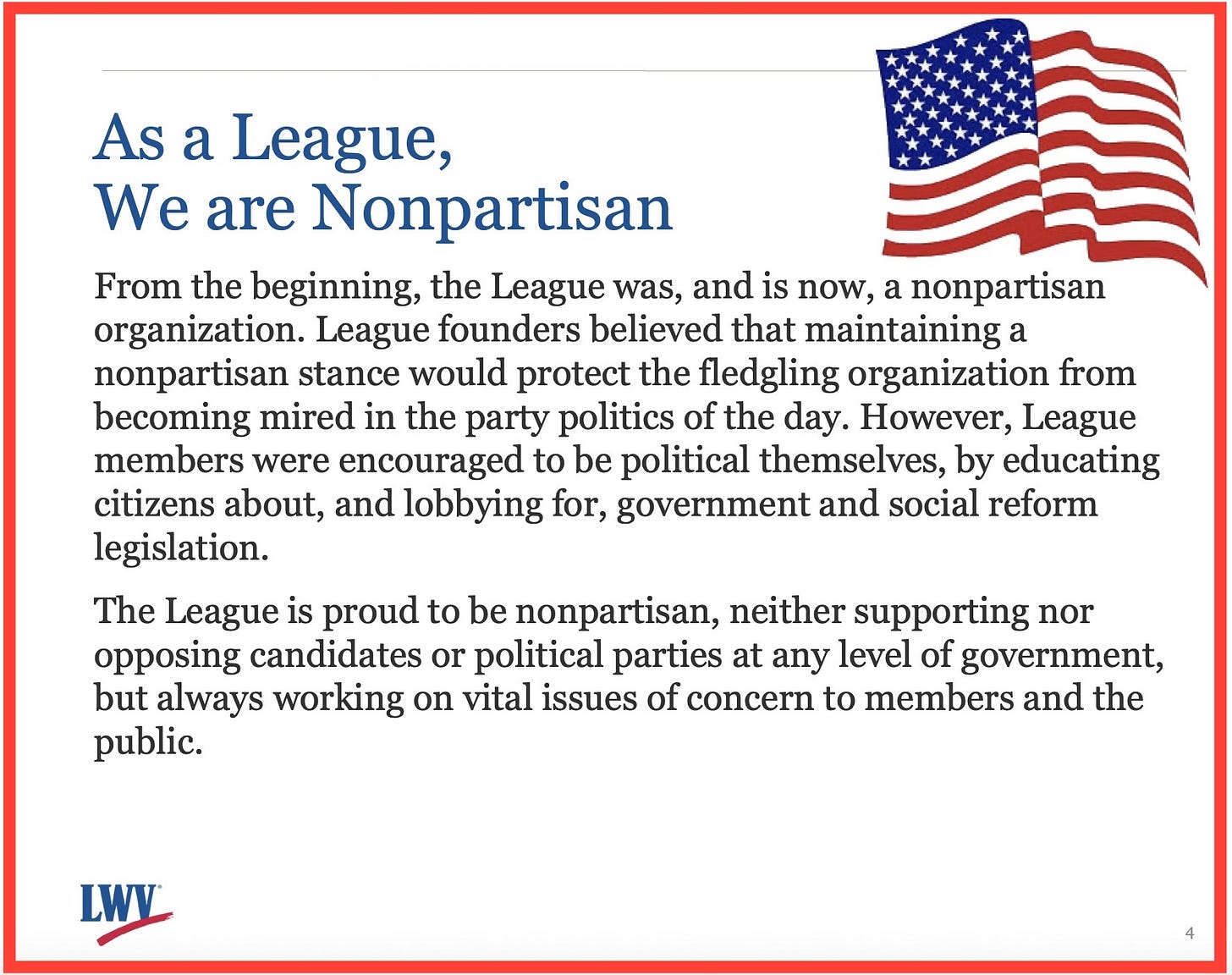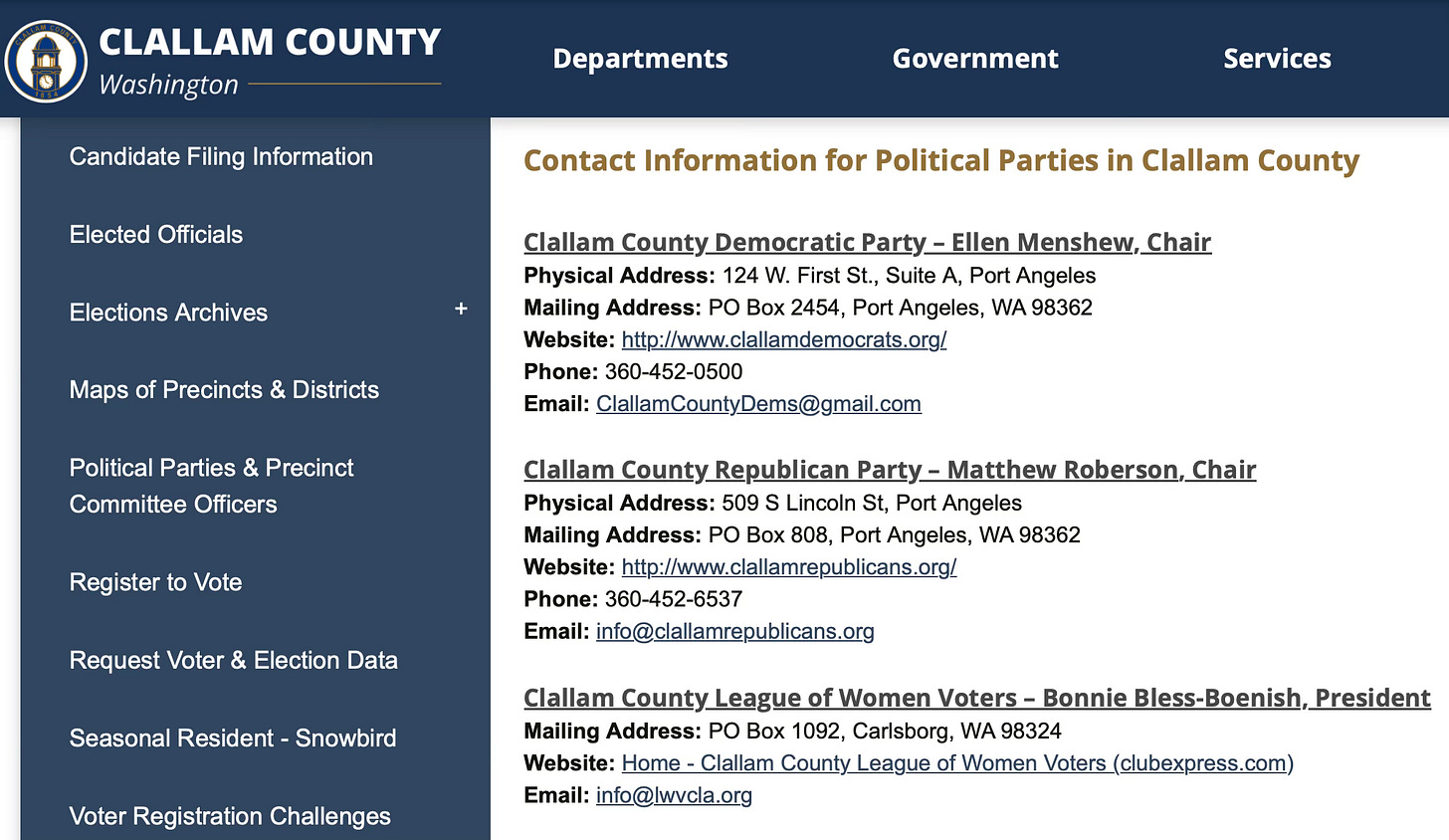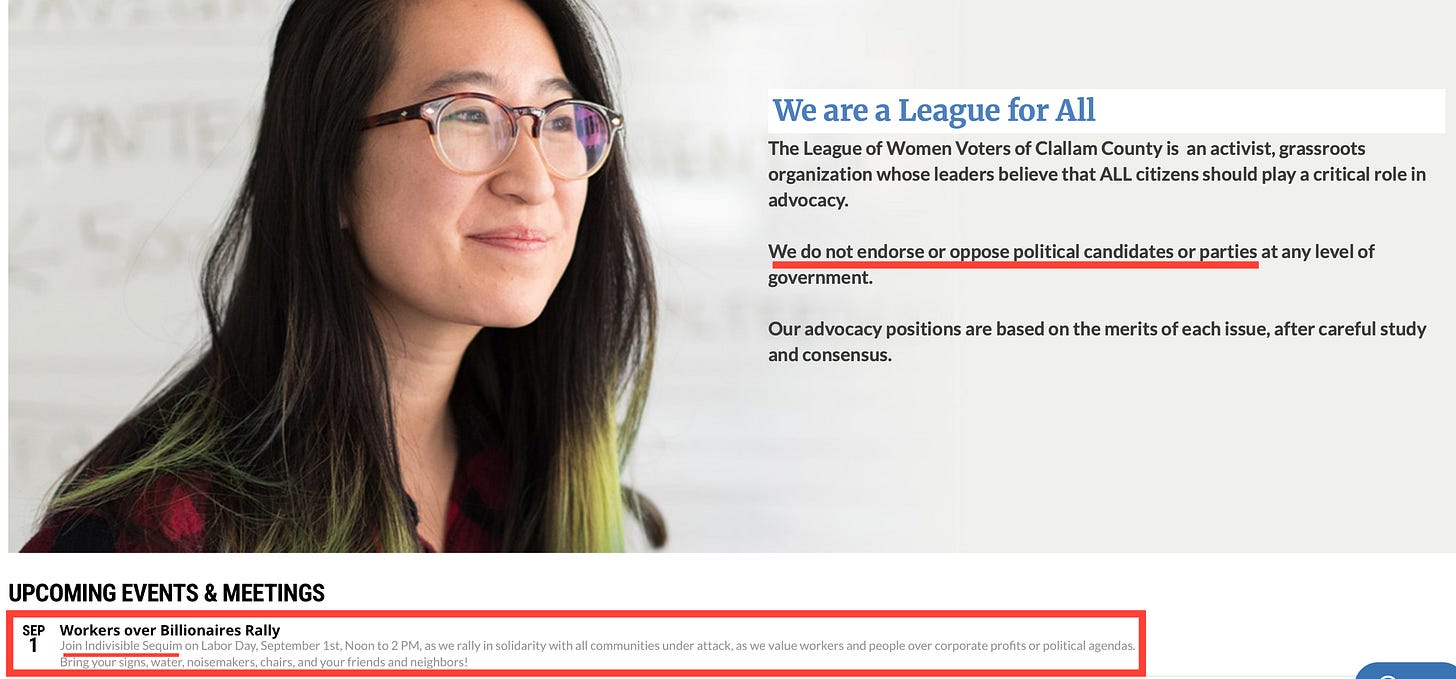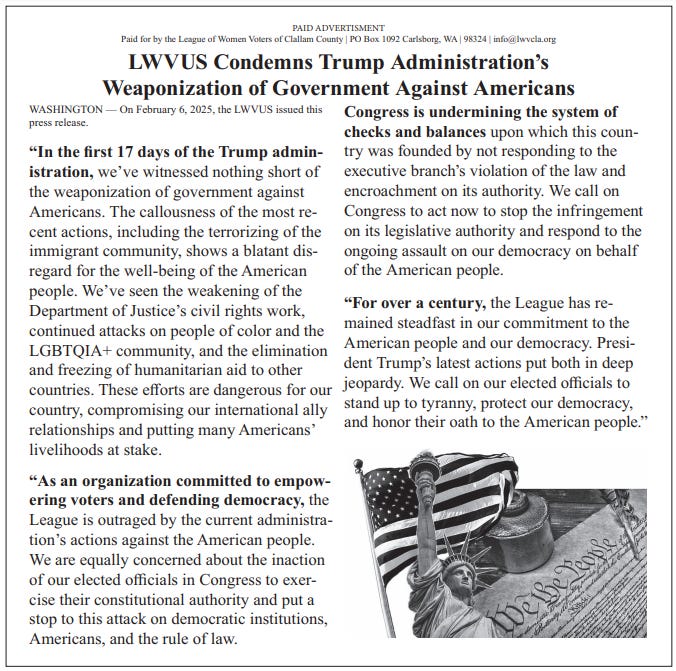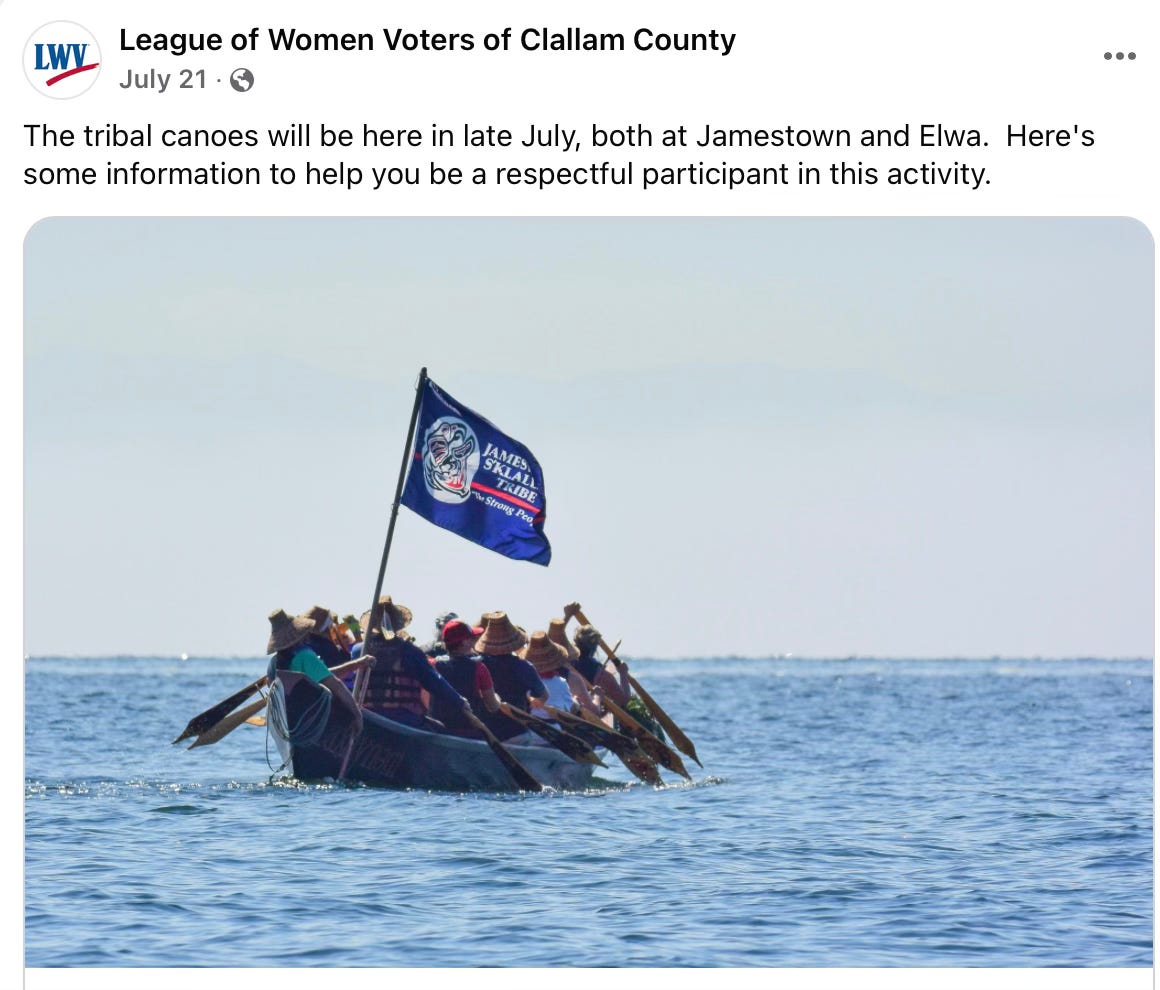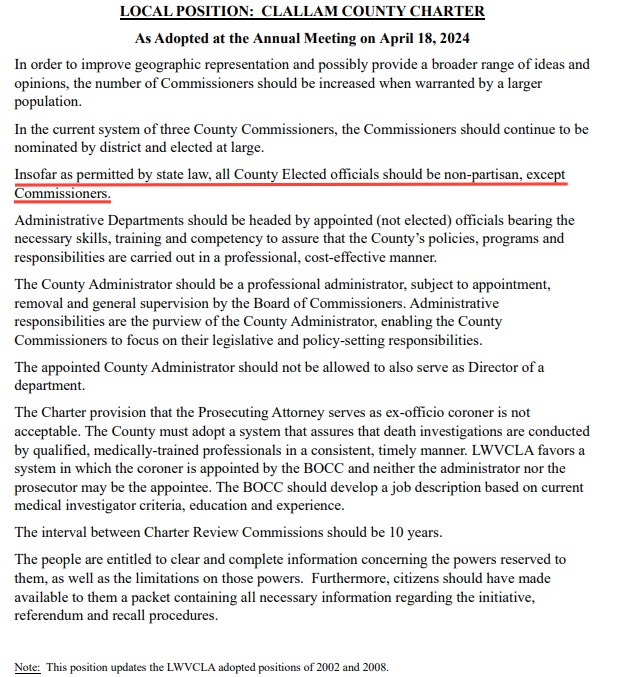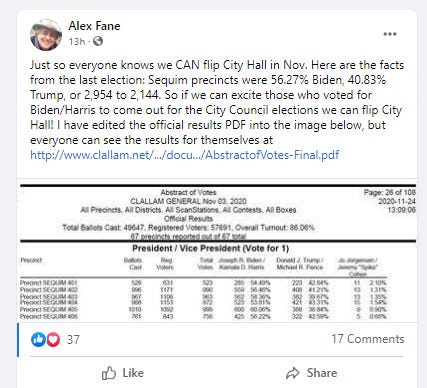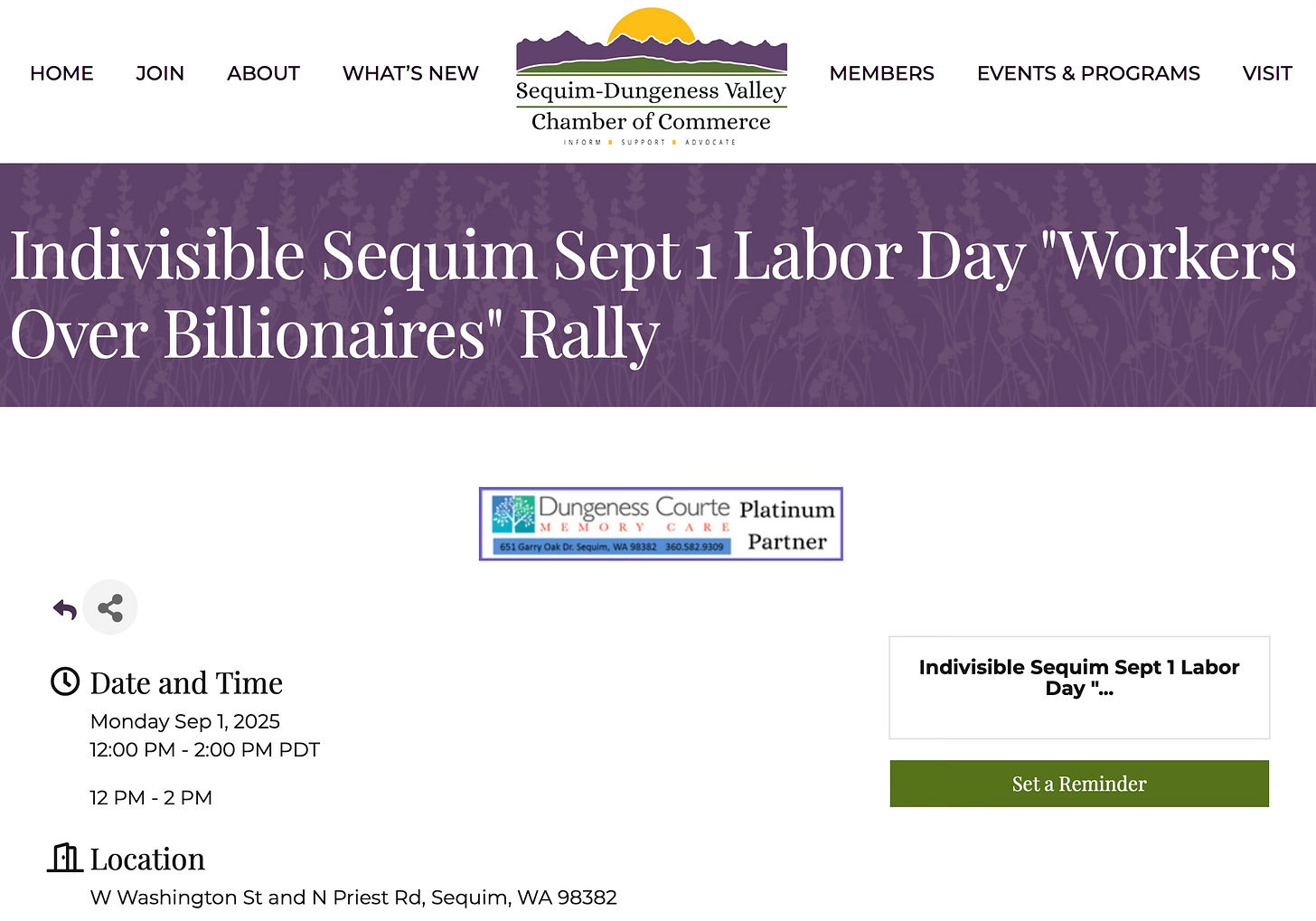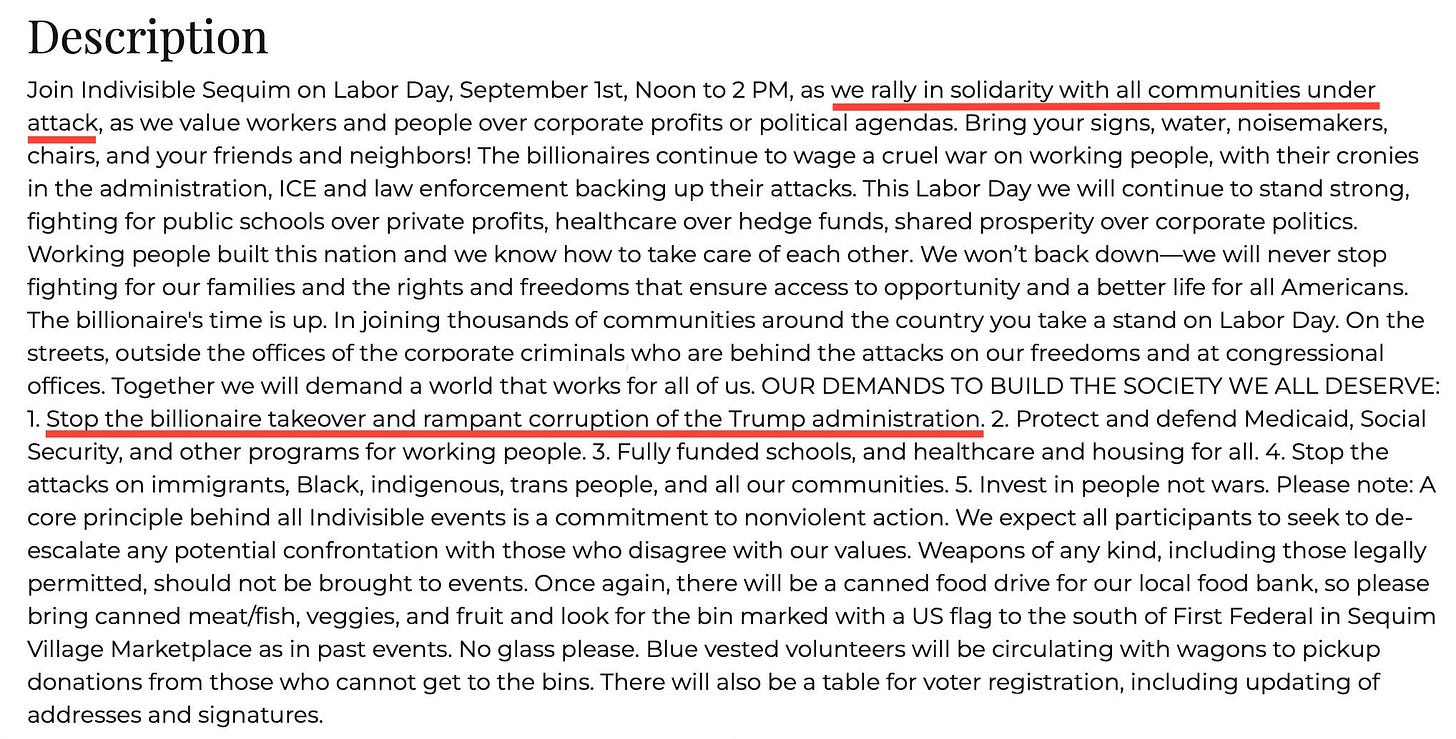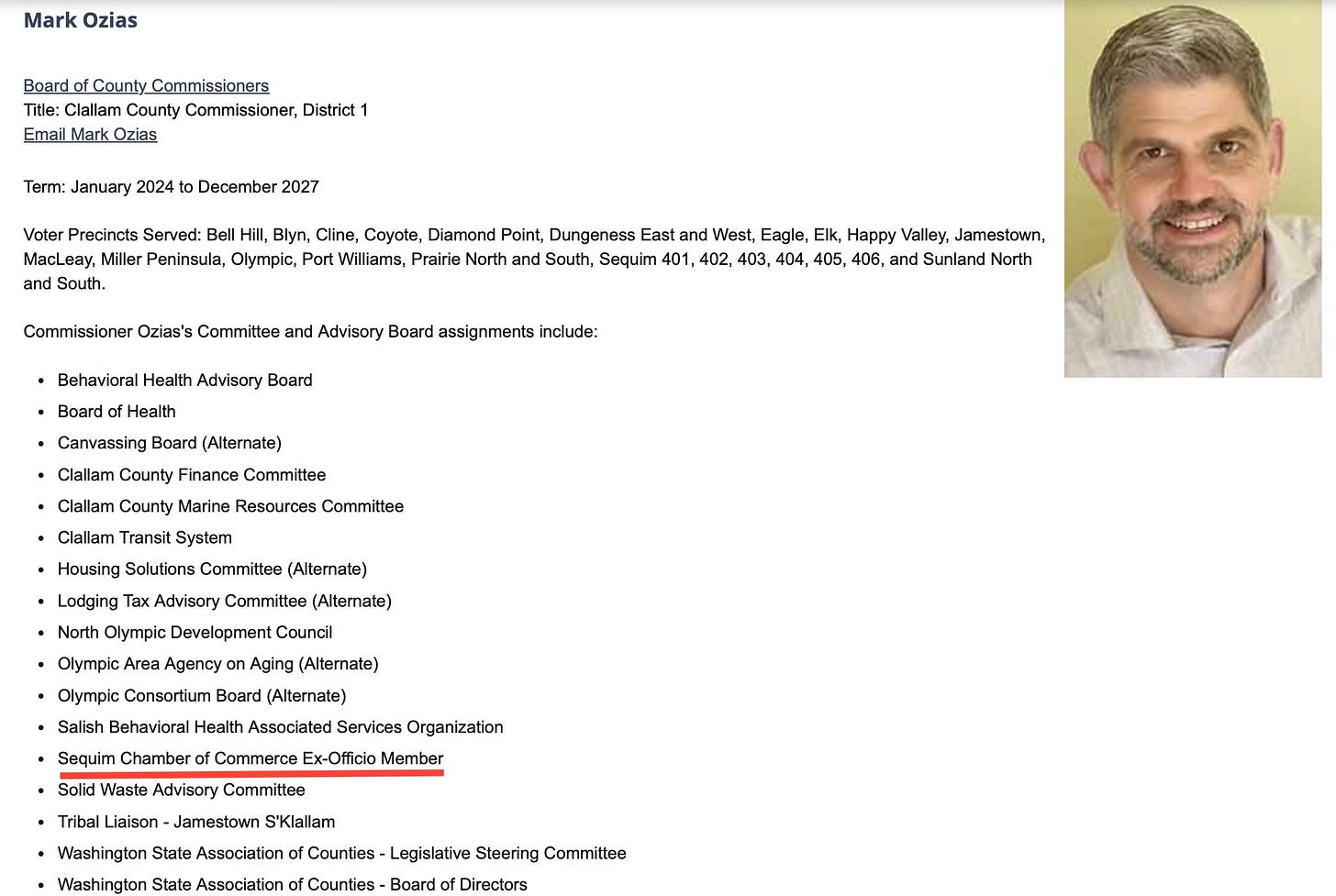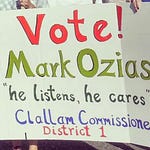In Clallam County, the word nonpartisan has become one of the most overused—and misused—labels in local politics. Organizations across the County claim the mantle of neutrality, but their actions often tell a different story. This isn’t about picking sides—it’s about honesty. If a group has a partisan agenda, why not admit it? Pretending to be neutral while advancing ideological goals confuses voters, alienates independents, and undermines trust in our civic institutions.
The League of Women Voters: Neutral or not?
The League of Women Voters of Clallam County (LWV) describes itself as a “League for All.” Its mission statement emphasizes that it does not endorse or oppose political parties or candidates, and instead advocates on issues “based on the merits” after study and consensus.
In practice, the LWV’s role is complicated. Their candidate forums are widely respected—but the format limits spontaneous engagement, as citizens must submit questions in advance, which are then curated by League members. And while the League insists it is nonpartisan, Clallam County itself lists the LWV alongside the Democratic and Republican Parties on its official “Political Parties & Precinct Committee Officers” webpage.
That raises an obvious question: Can something be both a political party and nonpartisan? By definition, a political party seeks to advance a specific platform through elections, while nonpartisanship means neutrality in that very competition. The two roles are mutually exclusive.
The League’s record suggests it leans more toward partisanship than neutrality. It promoted an Indivisible Sequim “Workers over Billionaires Rally,” despite Indivisible’s open opposition to one president in particular.

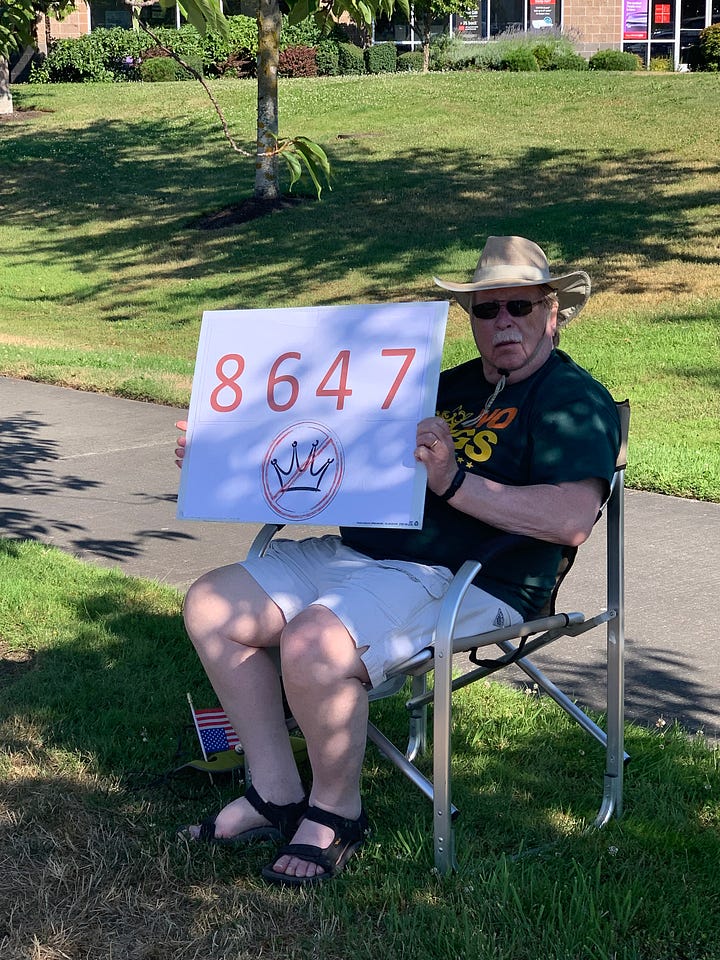
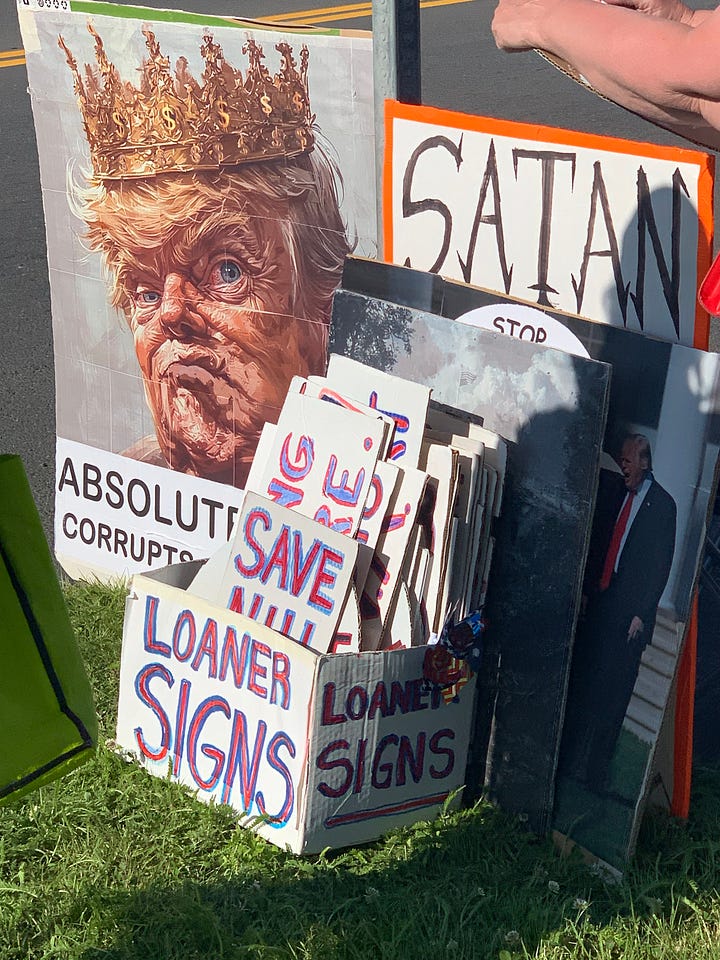
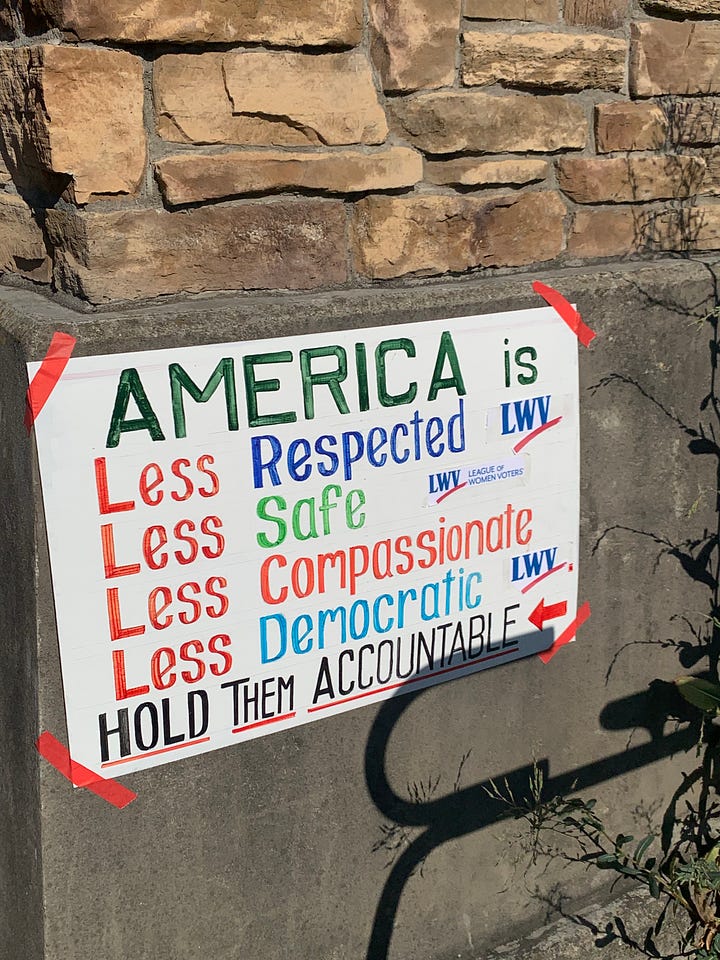
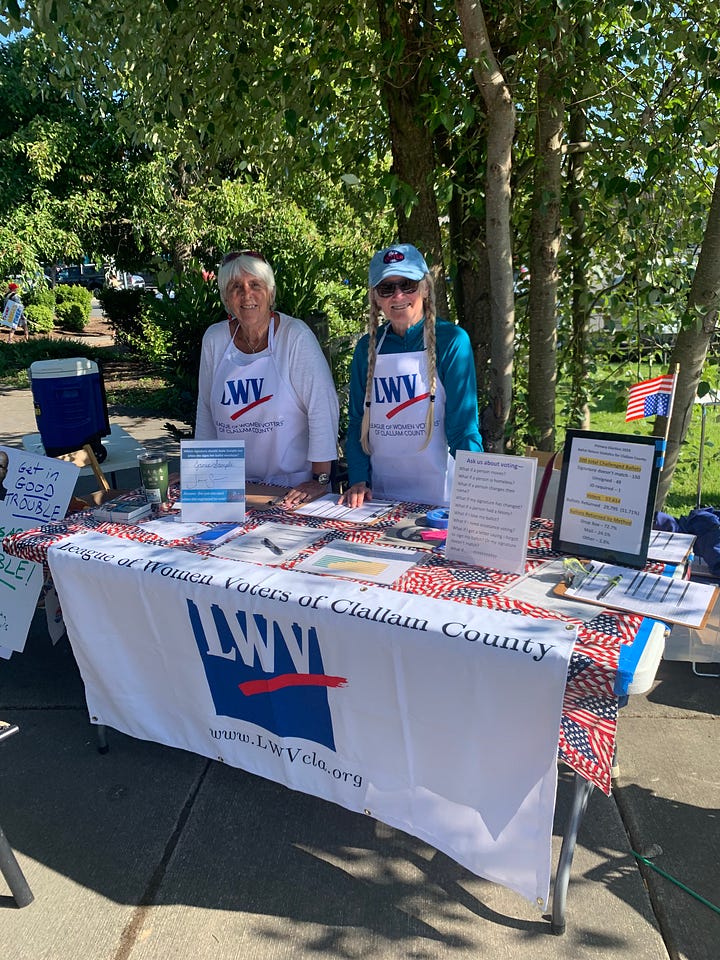
The LWV has also paid for ads condemning the president—contradicting its claim that it never supports or opposes candidates.
At the local level, the League endorsed the Jamestown S’Klallam Tribe’s Healing Campus project with a formal resolution, praising the Tribe’s leadership and partnerships.
While many support the project, taking an official organizational position goes beyond educating voters—it signals alignment with one side of a contentious issue.
The League’s Facebook activity also raises questions. Posts encouraging respect for Tribal Canoe Journeys may sound harmless, but they drift from the League’s core mission of educating voters and protecting democracy. When does community awareness become selective advocacy?
Even the League’s own policy positions raise eyebrows. On their website, the League of Women Voters of Clallam County states: “all County Elected officials should be non-partisan, except Commissioners.”
In other words, they advocate for positions like Auditor, Treasurer, Assessor, and Sheriff to be nonpartisan—but not Commissioners. Why carve out an exception for the very office that sets budgets and directs county policy? If nonpartisanship is so important for civic trust, shouldn’t it apply across the board?
The LWV’s stated values—on campaign finance reform, gun safety, immigration, climate change, and abortion access—are all issues with clear partisan divisions. Taken together, it is difficult to argue that the organization operates in a purely nonpartisan fashion.
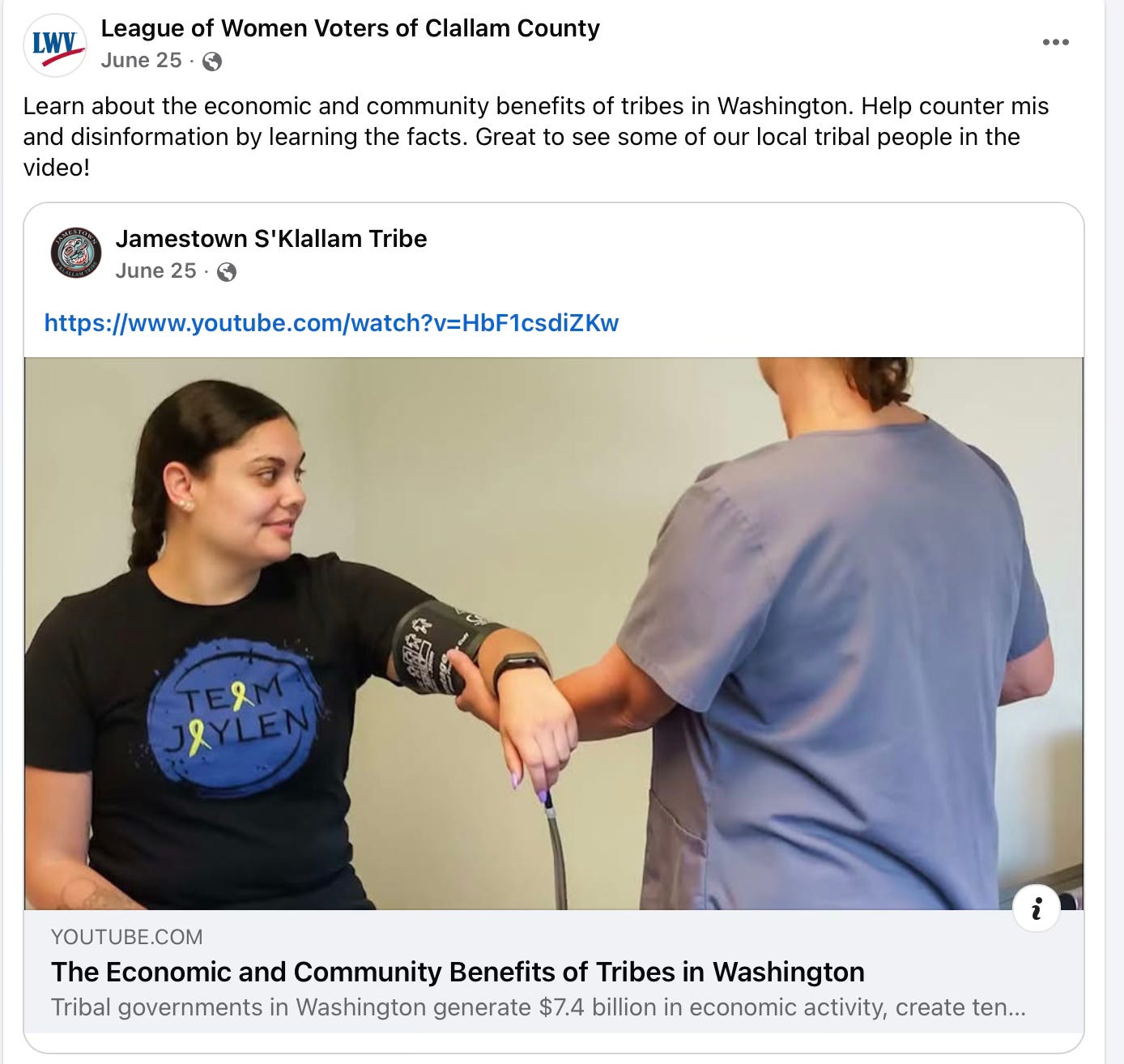
Sequim Good Governance League: Selective transparency
The Sequim Good Governance League (SGGL) also calls itself nonpartisan. Yet internal meeting notes tell another story. The group openly strategized about “flipping City Hall,” advised candidates on campaign timing, and curated messaging to keep control over narratives.
SGGL’s actions helped elect a slate of city council members who aligned with its priorities. Within months, the Jamestown Tribe praised the group for its success—particularly in connection to projects like the Tribe’s Medication Assisted Treatment (MAT) facility. Tribal donations to SGGL-backed candidates followed, further blurring the lines between independent civic advocacy and political maneuvering.
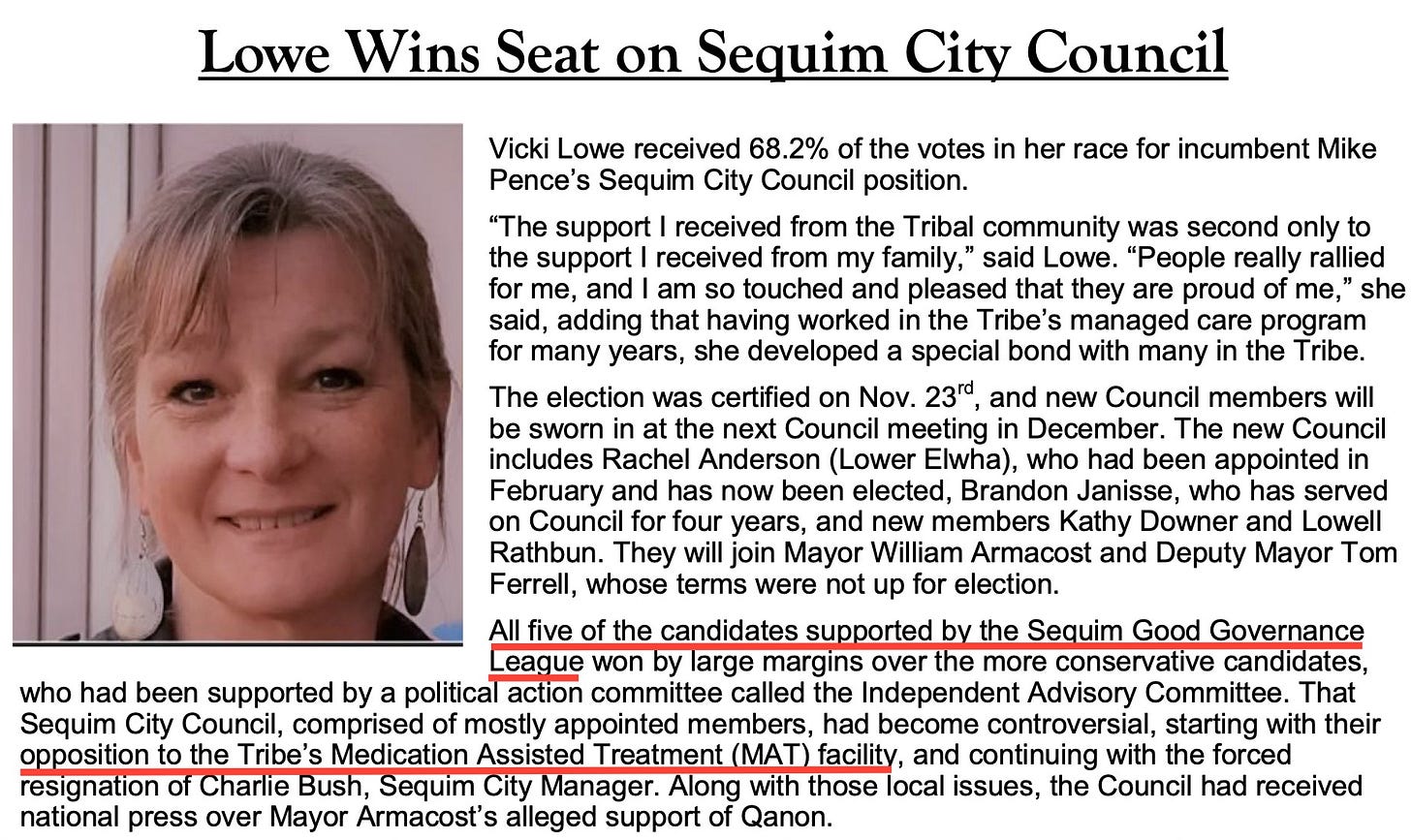
Even SGGL’s leadership conceded its base leaned left: “Most of those who are interested in good governance do lean towards the left.” That’s fine—but it isn’t nonpartisan.
At first, SGGL partnered with CC Watchdog in promoting transparency. But once Watchdog articles began scrutinizing decisions related to the Tribe and local spending, SGGL blocked posts and distanced itself, citing “negativity.” True transparency doesn’t stop at the point of discomfort.
Today, SGGL’s website is gone, and it’s unclear whether the group is still active. But its legacy illustrates the same contradiction: claiming neutrality while practicing partisanship.
Sequim Chamber of Commerce: The business community steps in
Even the Sequim-Dungeness Valley Chamber of Commerce, a business association, has dipped into this gray zone. On one hand, it stresses nonpartisanship, and its mission is to serve businesses. On the other hand, it has promoted events hosted by Indivisible Sequim—events that directly criticize national leadership and call for systemic political change.
According to the Sequim Gazette, the Chamber’s 2021 open letter urged “transparent nonpartisan governance,” yet its selective event promotion suggests otherwise. Advocating for local businesses is expected. Promoting partisan rallies muddies the waters.
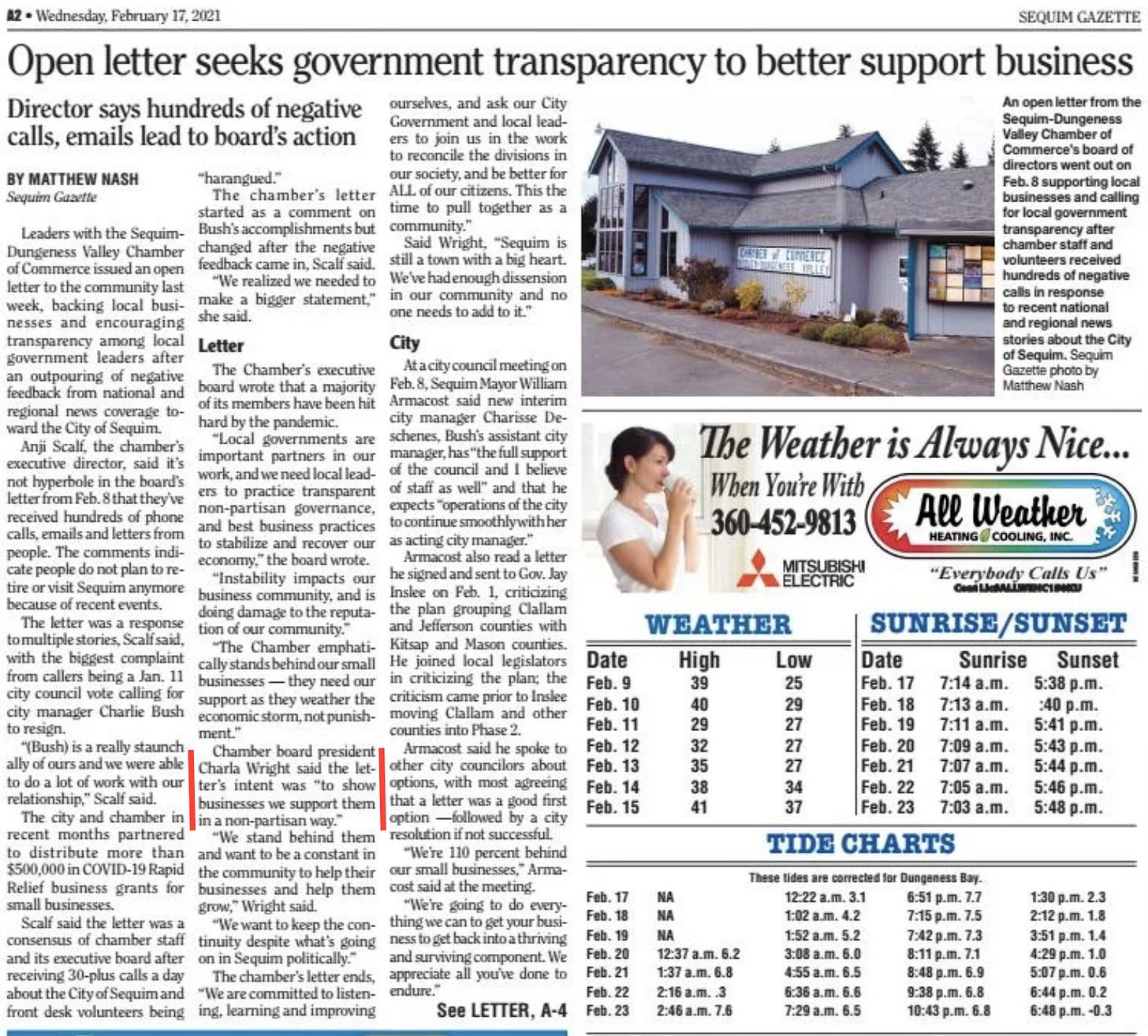
Partisan perspectives within local leadership
Commissioner Mark Ozias lists the Sequim Chamber of Commerce among the many organizations he serves. His involvement may offer context for why some local groups have been perceived as taking political positions despite publicly stating their neutrality.
Commissioner Ozias has at times expressed strong ideological views on national politics, often framing entire groups of people—such as Republicans—as part of a broader problem, rather than evaluating issues or individuals on their own merits. In a Facebook post, he wrote:
“It is nearly impossible to come together to debate issues and policy as long as so many people believe the lies they are told. And we cannot come together until those responsible for telling these lies, and stoking this hate, and instigating this violence, and celebrating it, are held accountable for their actions. Please don't hesitate to reach out to your own federal representatives to share your thoughts. We all need to be engaged right now!”
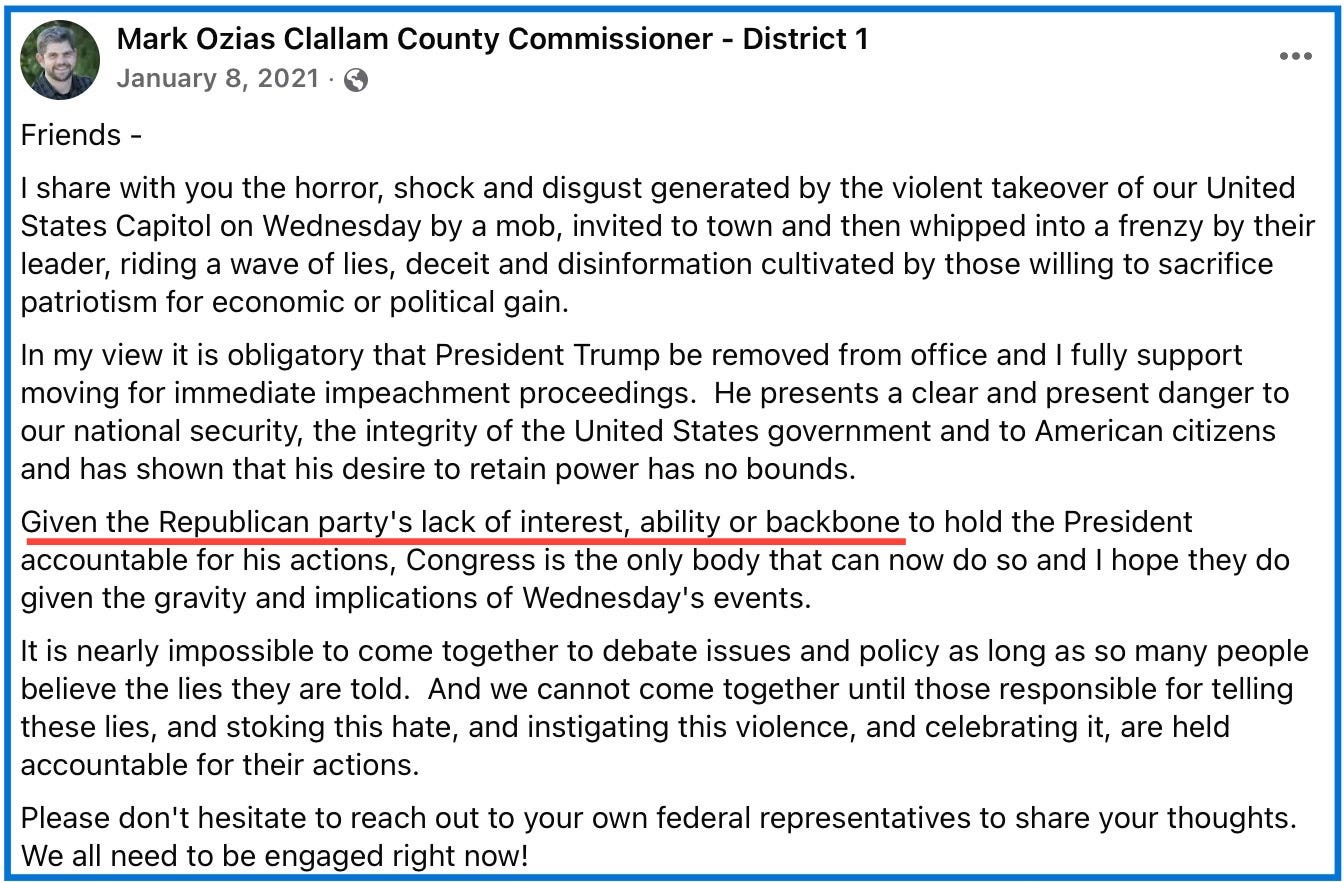
While elected officials are entitled to personal opinions, a commissioner in a bellwether county that is often split down the middle has taken an oath to serve fairly and impartially. When civic leaders publicly lump entire political parties together, it can influence how community organizations operate and which initiatives they promote—potentially undermining the perception of neutrality in organizations that claim to be nonpartisan.
Why honesty matters
Clallam County Republicans are openly Republican. Clallam County Democrats are openly Democratic. Voters know where they stand. There’s no confusion.
But when groups call themselves nonpartisan while clearly engaging in partisan activities, trust erodes. Voters—especially independents—are left wondering who to believe. Civic groups risk becoming gatekeepers rather than facilitators, narrowing debate instead of broadening it.
True nonpartisanship is rare, and maybe that’s okay. What our community needs more than buzzwords is honesty. If an organization is partisan, it should say so proudly. Pretending otherwise only confuses the public and undermines confidence in local democracy.
Thank you
Teresa, this article wouldn’t have been possible without your diligent research and the contributions of other engaged Watchdoggers. Thank you for attending meetings, actively participating in the comments section, and always taking the time to dig deeper whenever something doesn’t quite pass the sniff test. 💥😊💪🏼🤓👍🏼




